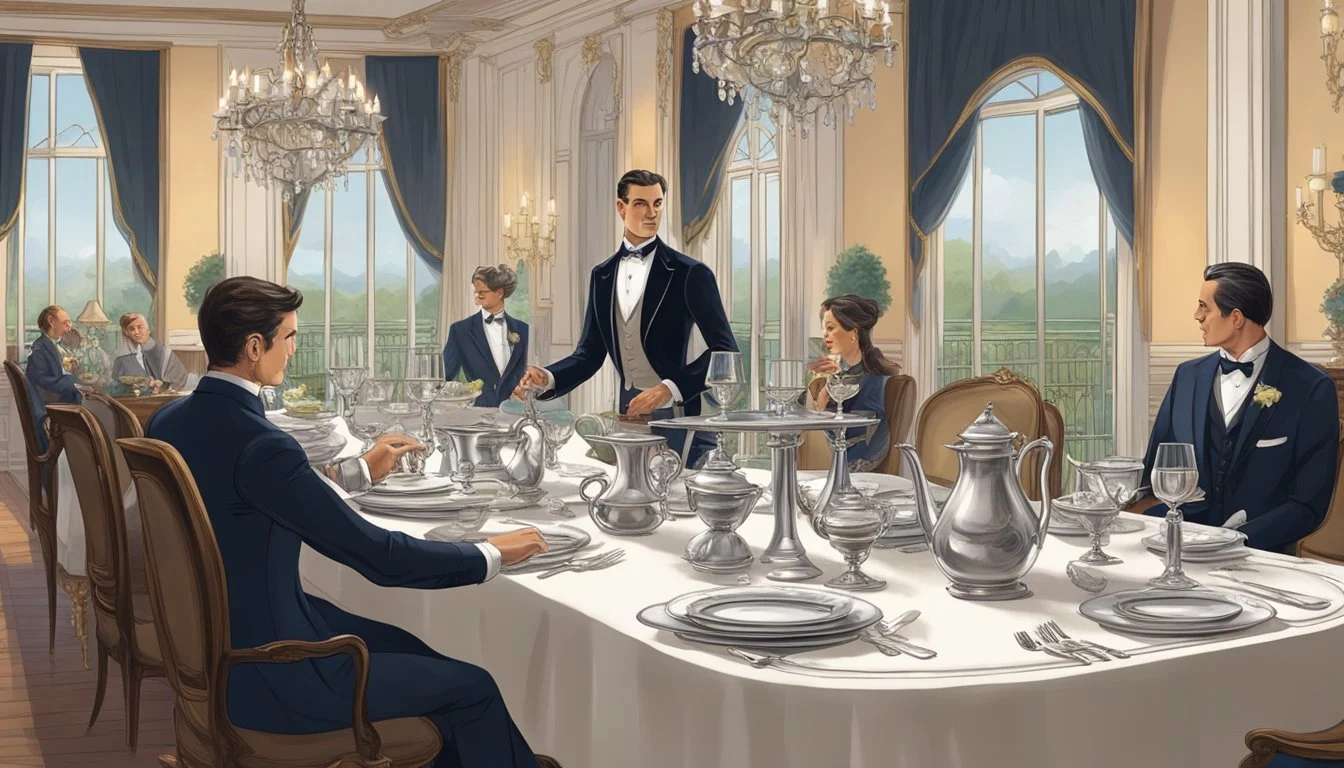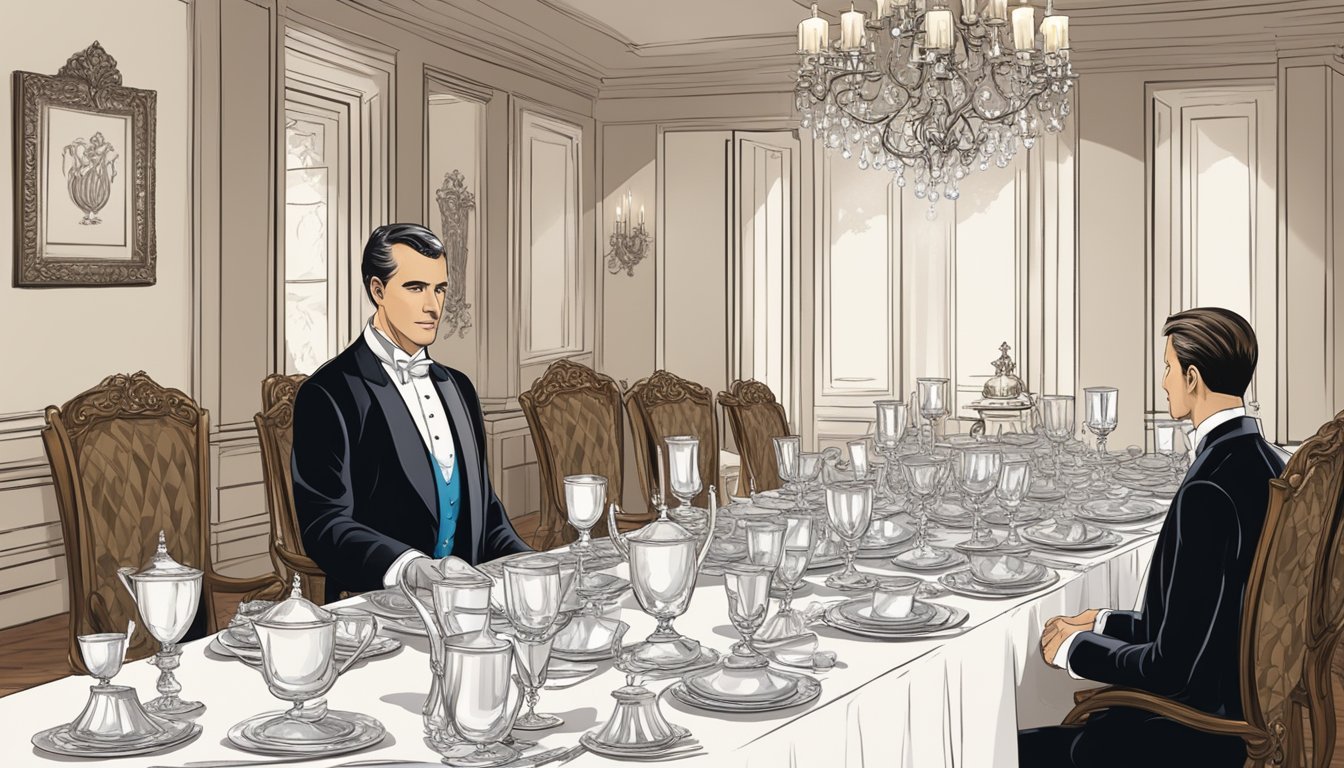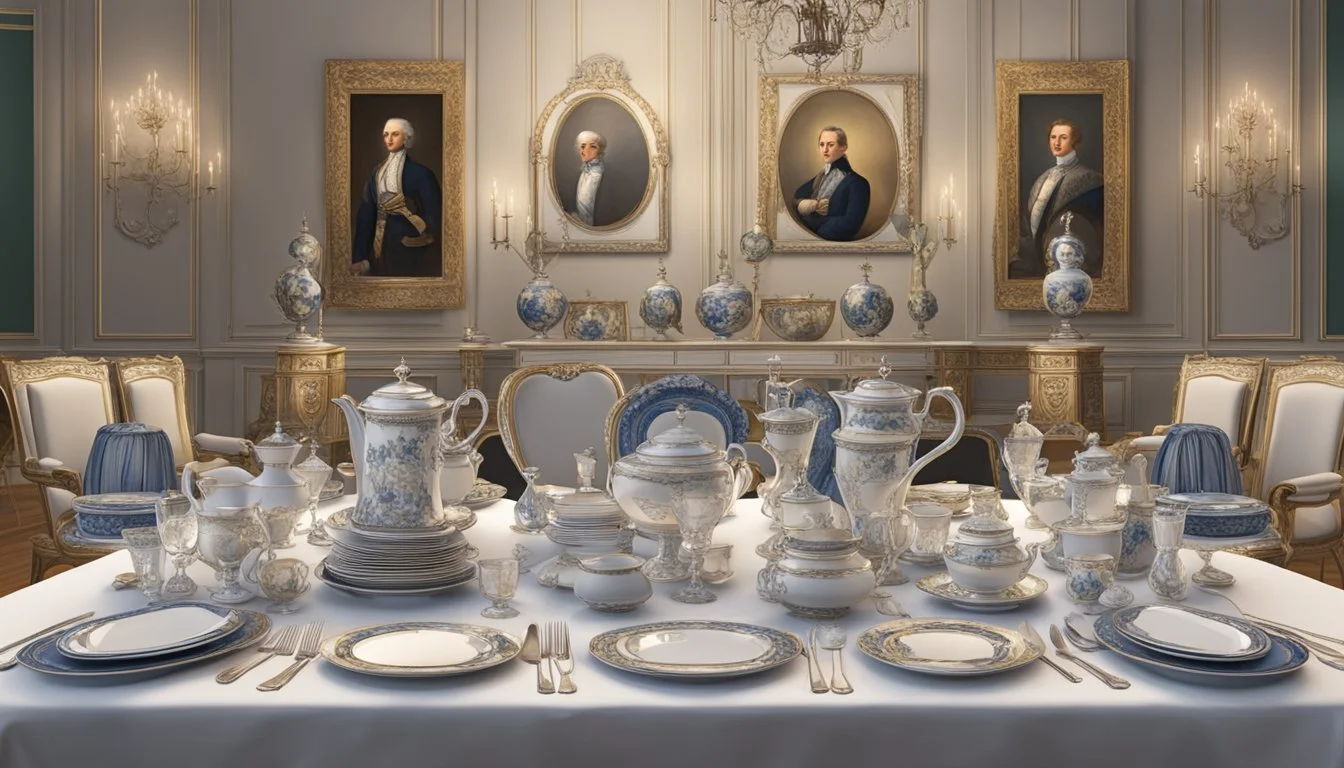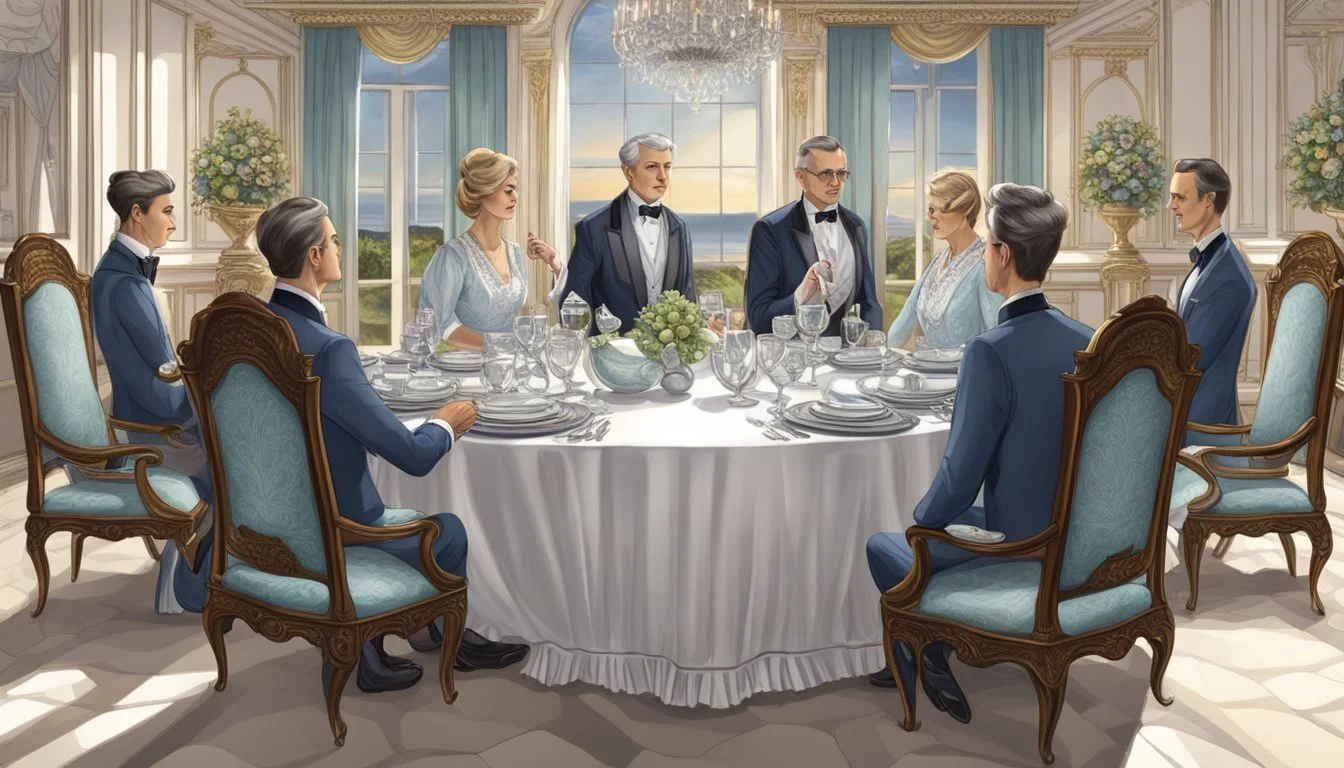Serving History: The True Tale of 'The Butler'
A Journey Through White House Administrations
Eugene Allen's extraordinary life as a White House butler inspired Lee Daniels' acclaimed film "The Butler." For 34 years, Allen served eight U.S. presidents, witnessing pivotal moments in American history firsthand. His story, brought to light by Wil Haygood's Washington Post article, offers a unique perspective on the Civil Rights era and the evolving social landscape of 20th-century America.
While the movie takes creative liberties with Allen's biography, it captures the essence of his remarkable journey. From humble beginnings to a front-row seat to history, Allen's career spanned from Eisenhower to Reagan. The film dramatizes key events and relationships, but at its core lies the true tale of a man who quietly shaped history through his dedicated service.
"The Butler" blends fact and fiction to create a powerful narrative about race, politics, and personal growth in America. It showcases Allen's ability to maintain dignity and professionalism while navigating complex social changes. Though fictionalized, the movie honors the real Eugene Allen's legacy and sheds light on an often-overlooked perspective of historical events.
Origin and True Story of 'The Butler'
'The Butler' draws inspiration from the life of Eugene Allen, a White House butler who served eight presidents. The film blends historical facts with fictional elements to create a compelling narrative.
Inspiration from Eugene Allen's Life
Eugene Allen worked as a White House butler for 34 years, from 1952 to 1986. Born on a Virginia plantation, Allen witnessed significant changes in American society throughout his career. His story caught the attention of Washington Post reporter Wil Haygood, who wrote an article about Allen in 2008.
Allen's experiences during the Civil Rights Movement and his unique perspective on presidential administrations sparked interest in Hollywood. His life story provided a framework for exploring race relations and social progress in America.
Evolution to Fictionalized Story
Screenwriter Danny Strong adapted Allen's story into a fictionalized screenplay. The main character, Cecil Gaines, is loosely based on Eugene Allen but incorporates fictional elements to enhance dramatic impact.
The film expands on Allen's experiences, adding fictional family dynamics and personal struggles. It portrays Cecil Gaines' journey from a plantation in the South to his role as a White House butler. While based on a true story, 'The Butler' takes creative liberties to create a broader narrative about race in America.
Key historical events and presidential portrayals in the film are grounded in fact, but many personal details and family relationships are fictionalized for storytelling purposes.
Historical Context and Representation
"The Butler" depicts pivotal moments in American history through the unique lens of a White House staff member. It captures the Civil Rights Movement's progression and major events during multiple presidential administrations.
Civil Rights Era in America
The 1950s and 1960s saw tremendous social upheaval as African Americans fought for equal rights. The film portrays key events like the Freedom Rides of 1961, where activists challenged segregation on interstate buses. It also depicts the 1963 March on Washington, where Martin Luther King Jr. delivered his famous "I Have a Dream" speech.
Desegregation efforts in schools and public spaces feature prominently. The movie highlights the Little Rock Nine crisis of 1957, when federal troops escorted black students into a previously all-white high school. These scenes illustrate the tension and violence that often accompanied integration attempts.
Presidential Tenures and Events
The film spans eight presidential administrations, offering glimpses into how each leader approached civil rights issues. Dwight D. Eisenhower's response to school desegregation is portrayed, as is John F. Kennedy's televised address on civil rights in 1963.
Lyndon B. Johnson's presidency marks a turning point with the passage of the Civil Rights Act of 1964. The movie shows Johnson's political maneuvering to secure this landmark legislation. Later administrations grapple with ongoing racial tensions and the Vietnam War's impact on the nation.
Richard Nixon's presidency is depicted during the height of anti-war protests. The film touches on Gerald Ford and Jimmy Carter's tenures before exploring Ronald Reagan's approach to civil rights and foreign policy in the 1980s.
Lee Daniels' Film Adaptation
Lee Daniels brought Eugene Allen's story to the big screen in 2013 with "The Butler". The film showcased Allen's life through a fictionalized character named Cecil Gaines, portrayed by Forest Whitaker.
Character Development and Casting
Forest Whitaker took on the lead role of Cecil Gaines, the film's version of Eugene Allen. Oprah Winfrey played Gloria Gaines, Cecil's wife, based on Helene Allen. The casting choices aimed to bring gravitas to the historical narrative.
Daniels and screenwriter Danny Strong crafted composite characters to represent different aspects of the civil rights movement. This approach allowed the film to explore broader themes while maintaining a personal focus on the butler's journey.
Production and Direction
Lee Daniels directed the film with a keen eye for historical detail. He worked to balance the intimate story of the Gaines family with the sweeping narrative of American history unfolding around them.
The production design recreated the White House through different eras, reflecting the changing times Cecil witnessed. Daniels collaborated closely with costume designers to ensure period accuracy across decades.
He aimed to capture the essence of each presidential administration Cecil served under. This attention to detail helped immerse viewers in the historical context of the story.
Impact and Legacy of 'The Butler'
'The Butler' sparked conversations about race relations and civil rights history in America. It brought attention to the often-overlooked experiences of African Americans who worked behind the scenes in positions of service.
Influence on Popular Culture
'The Butler' resonated with audiences and critics alike. The film's success at the box office demonstrated public interest in stories exploring America's racial history. It earned several award nominations, including Screen Actors Guild nods for Forest Whitaker and Oprah Winfrey.
The movie introduced younger generations to pivotal moments in the Civil Rights Movement. It highlighted figures like Martin Luther King Jr. and the Black Panthers in a mainstream Hollywood production.
'The Butler' also renewed interest in the real-life experiences of White House staff members. It prompted discussions about the perspectives of those who witnessed history unfold from unique vantage points.
Educational and Social Commentary
Schools and community groups used 'The Butler' as a teaching tool. The film provided a starting point for discussions about segregation, voting rights, and ongoing racial inequalities.
It drew parallels between past struggles and contemporary issues, encouraging viewers to reflect on progress made and challenges that remain. The movie's timeline, spanning from the 1920s to Barack Obama's presidency, offered a sweeping view of societal changes.
'The Butler' also highlighted the complexities of African American experiences during the Civil Rights Era. It portrayed generational differences in approaches to activism and social change.
Personal Lives of the Allens
Eugene and Helene Allen's marriage spanned decades, weathering societal changes and personal challenges. Their son Charles pursued a different path from his father's White House service.
Eugene and Helene's Journey
Eugene Allen met Helene at a birthday party in Washington, D.C. in 1942. Helene took the initiative, pursuing Eugene when he was too shy to ask for her number. They married in 1943, a decade before Eugene began working at the White House.
The couple lived in a modest home in Washington, D.C. Throughout Eugene's 34-year career serving eight presidents, Helene provided unwavering support. She maintained their household and raised their son Charles while Eugene worked long hours.
Helene passed away in 2008, just days before Barack Obama's historic election. Eugene attended Obama's inauguration at the special invitation of the incoming president.
Legacy of Charles Allen
Charles Allen, Eugene and Helene's only child, was born in the 1940s. Unlike his father, Charles did not pursue a career in service at the White House. Instead, he joined the U.S. Army and served in Vietnam.
After his military service, Charles worked as an investigator for the State Department. He maintained a close relationship with his parents throughout their lives.
Charles played a key role in preserving his father's legacy. He shared family stories and mementos with journalists and filmmakers, helping to bring Eugene Allen's remarkable life to public attention.
Significance in African American History
Eugene Allen's journey from a Virginia plantation to the White House mirrors the broader arc of African American history in the 20th century. His experiences reflect the struggles and progress of the Civil Rights movement.
From Plantation to Civil Rights
Eugene Allen was born in 1919 on a plantation near Scottsville, Virginia. He grew up during the era of Jim Crow laws and segregation. Allen's early life coincided with pivotal events in African American history. The 1954 Brown v. Board of Education decision outlawed school segregation during his tenure at the White House.
The Civil Rights Act of 1964 was signed into law while Allen served as a butler. This landmark legislation prohibited discrimination based on race, color, religion, sex, or national origin. Allen's career spanned a period of immense social change and progress for African Americans.
Representation in the White House
Allen's role as a White House butler held symbolic importance. He was one of the few African Americans with regular access to the nation's most powerful leaders. Allen worked alongside Alonzo Fields, another prominent African American butler who served four presidents.
Allen's presence in the White House represented a gradual shift in racial dynamics. He participated in state dinners and interacted with world leaders. First Ladies often relied on Allen's expertise and discretion. His 34-year career provided a unique perspective on the evolution of race relations at the highest levels of government.
Comparative Analysis
"The Butler" blends historical events with creative storytelling. This section examines the film's factual basis and its cinematic interpretation of Eugene Allen's life.
Fact vs. Fiction in 'The Butler'
Eugene Allen, the real-life inspiration for Cecil Gaines, served in the White House for 34 years. The film accurately portrays Allen's long tenure and his interactions with multiple presidents.
However, "The Butler" takes creative liberties. Cecil's backstory, including the tragic events on the cotton farm, is fictional. Allen's actual upbringing was less dramatic.
The movie exaggerates family conflicts. In reality, Allen had one son, not two. The film's portrayal of a politically active son is an invention to highlight generational differences during the Civil Rights era.
Differences in Cinematic Portrayal
Lee Daniels' "The Butler" dramatizes Allen's life for emotional impact. The film compresses decades of history into a two-hour narrative, necessitating some historical condensation.
Cecil Gaines, as portrayed by Forest Whitaker, is a more complex character than the real Eugene Allen. The movie adds layers of internal conflict and family drama to create a more compelling protagonist.
The film emphasizes racial tensions and political events more heavily than Allen's actual experiences. This approach allows the movie to use Cecil's story as a lens through which to view significant moments in American history.
Cinematic elements like lighting, music, and pacing are used to heighten dramatic moments, creating a more intense viewing experience than a strictly factual account would provide.






